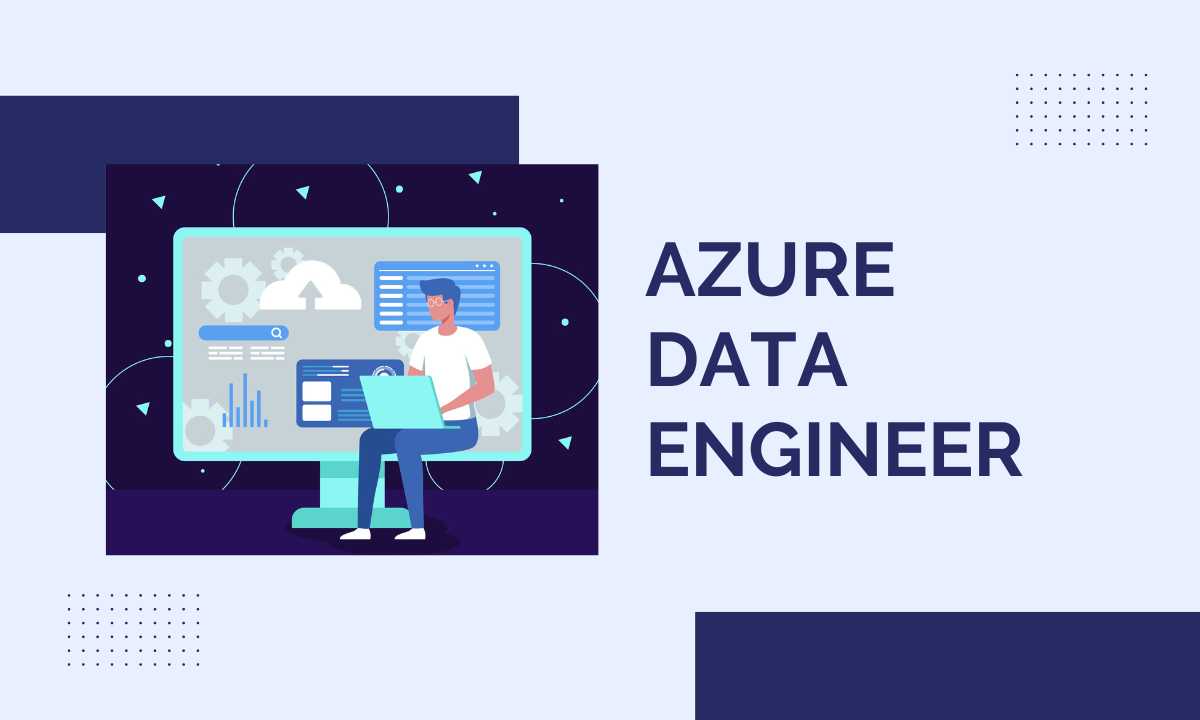- Delhi
- Last Update 11:38: pm

A Guide to Becoming an Azure Data Engineer
The world runs on data, and with the ever-increasing volume and complexity of information, skilled data engineers are in high demand. If you're looking for a dynamic career path that merges technical expertise with problem-solving, becoming an Azure Data Engineer could be the perfect fit.
1. How to Become an Azure Data Engineer?
There's no single road to becoming an Azure Data Engineer, but a well-defined path can accelerate your journey. Here's a roadmap to consider:
Foundational Knowledge: A solid understanding of data engineering concepts is crucial. Familiarize yourself with data pipelines, data storage solutions, and data processing techniques. Resources like Microsoft's learning path on "https://learn.microsoft.com/en-us/credentials/certifications/azure-data-fundamentals/" can provide a strong base.
Programming Proficiency: Data engineers rely on programming languages to manipulate and transform data. Master SQL for data querying and consider learning Python for its versatility in data analysis and automation. Familiarity with Scala, commonly used with Apache Spark, can also be beneficial.
Embrace the Cloud: Azure is your playground! Deepen your knowledge of core Azure services like Azure Data Lake Storage, Azure Data bricks, Azure Data Factory, and Azure Synapse Analytics. Microsoft offers various learning resources and hands-on labs to get you started.
Certification: While not mandatory, earning the Microsoft Certified: Azure Data Engineer Associate (DP-203) validates your expertise. This industry-recognized credential demonstrates your ability to design and implement data solutions using Azure services.
2. The Path Towards Becoming an Azure Data Engineer
Formal Education: A bachelor's degree in computer science, information technology, or a related field can provide a strong foundation. However, non-traditional backgrounds with relevant experience and a passion for data are also valued.
Experience & Projects: Hands-on experience is paramount. Look for opportunities to build data pipelines, explore Azure services, and participate in personal projects to solidify your learning. Consider contributing to open-source projects to showcase your skills.
Continuous Learning: The data engineering landscape constantly evolves. Stay updated on the latest Azure services, industry trends, and best practices. Online courses, conferences, and communities like the Microsoft Azure Data community can be invaluable resources.
3. Reasons to Choose Data Engineer Jobs in Azure
High Demand & Lucrative Salaries: Data engineering is a rapidly growing field, with Azure skills particularly sought-after. This translates to excellent job prospects and competitive salaries.
Cloud-first Approach: The cloud is the future, and Azure is a leading platform. As an Azure Data Engineer, you'll be at the forefront of cloud-based data solutions, shaping the future of data management.
Diverse & Challenging Work: No two days are the same! Data engineers tackle complex problems, design innovative solutions, and work with cutting-edge technologies, ensuring a stimulating and ever-evolving work environment.
Make an Impact: Data is the lifeblood of modern businesses. Azure Data Engineers play a crucial role in extracting insights from data, enabling better decision-making and driving organizational success.
4. Basic Skills for Azure Data Engineers
Data Engineering Concepts: Understanding data pipelines, data modeling, data cleansing, and data warehousing is essential.
SQL Proficiency: Familiarity with querying data using SQL is non-negotiable.
Cloud Fundamentals: A grasp of cloud computing concepts, particularly those related to Azure services, is crucial.
Programming Languages: Python, and potentially Scala, are valuable tools for data manipulation and automation.
Problem-Solving & Analytical Skills: The ability to analyze data, identify issues, and design efficient solutions is key.
Communication & Collaboration: Working effectively with data scientists, analysts, and stakeholders requires strong communication skills.
5. Role-specific Skills for Data Engineers
Big Data Processing: Engineers working with large datasets may require expertise in Apache Spark and related frameworks.
Machine Learning & AI: Data engineers who support machine learning initiatives might delve into tools like Azure Machine Learning.
Data Security & Compliance: Ensuring data security and adhering to regulations is a critical aspect for some data engineers.









